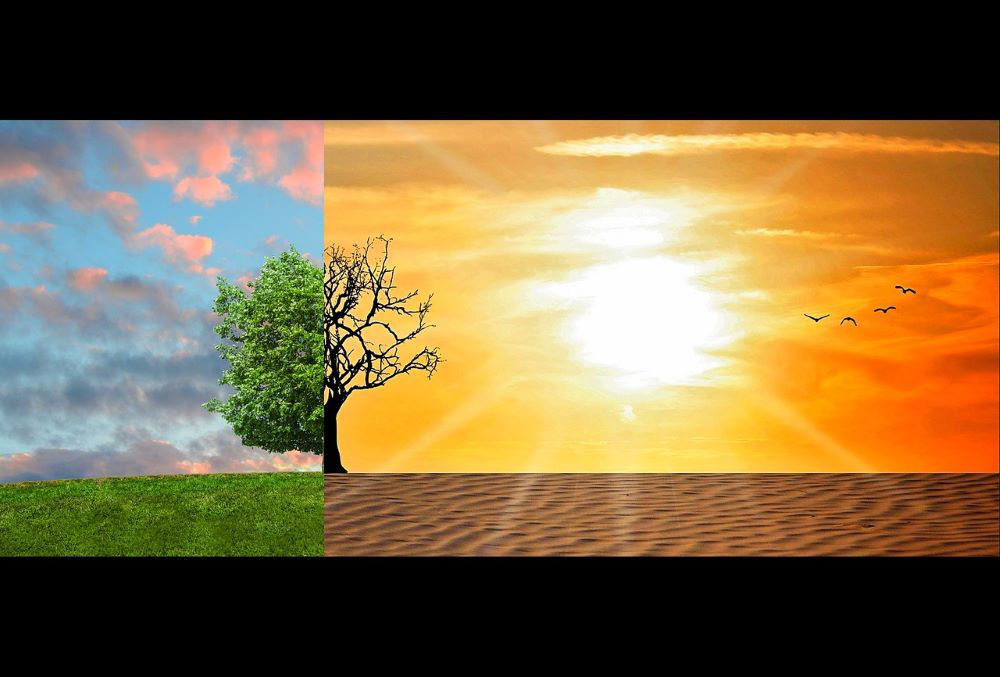Have you ever heard of climate fiction? How about eco-fiction or environmental fiction? There are many names for this trending genre and its popularity is only increasing. Essentially, this genre explores humanity’s influence on the environment. Oftentimes, science fiction and dystopian literature can also be considered cli-fi. It examines what could happen in our future regarding climate change, other man-made environmental issues, or it displays current ecological issues at a personal level.
According to Jennifer Hijazi in her news article, “Meet cli-fi. It’s dark, it’s gloomy — and it might help,” the genre of climate fiction “is helping readers come to terms with global warming predictions and even imagine solutions for it, experts and authors say.” In today’s coronavirus pandemic, many are turning to books to escape the world, but also don’t want to forget about it, as Yessenia Funes commented on in her article, “9 Climate Apocalypse Novels to Take Your Mind Off the Coronavirus Disaster.” She gives some cli-fi recommendations and says what I think many people are feeling right now: “I want to retreat to the world of fiction, but that doesn’t mean I want to forget about the climate crisis.” Taking a page out of Funes’s book, I’d like to give a couple of examples of each of the following: books that could be considered cli-fi from our very own Ooligan Press, popular literature supplied by Hijazi and Funes, and my own recommended cli-fi reads.

Seven Stitches by Ruth Tenzer Feldman

The Names We Take by Trace Kerr
Though not necessarily about the climate crisis, Ooligan’s dystopian title The Names We Take hauntingly echoes our current pandemic situation. It’s set in the near future after a deathly plague has hit Earth, following seventeen-year-old Pip as she leads twelve-year-old Iris in a search for meaning and identity in the wake of tragedy. Seven Stitches, published by Ooligan in 2017, is set in Portland a year after the Cascadia subduction zone earthquake has demolished the city. While searching for her mother, Meryem is given a magical prayer-shawl by her grandmother, which calls her on a journey through time to save a young girl from slavery in sixteenth-century Instanbul.

The Handmaid’s Tale by Margaret Atwood

Parable of the Sower by Octavia Butler
I would be remiss to not mention The Handmaid’s Tale by Margaret Atwood, a story set in the near future about women’s bodies and who controls them. Hijazi called Atwood “instrumental in cementing cli-fi as a genre in its own right” in her above-mentioned article. The title Parable of the Sower by Octavia Butler, a recommendation from Funes’ article, was written in 1993 about the early 2020s and sounds startlingly familiar: “It examines a future U.S. where climate change is here, inequality is more rampant than ever, and people are desperate.”

The Life of Elves by Muriel Barbery

Summerlong by Peter S. Beagle
The Life of Elves by Muriel Barbery is about two young extraordinary girls who have never met and yet their otherworldly connection to the land and to each other enables them to save their worlds from looming danger. It’s beautifully written, and the protagonists are agents for nature. Summerlong by Peter S. Beagle is about a woman named Lioness who arrives on an island in the Puget Sound, bringing with her long-lasting, unseasonably perfect spring weather and changing the lives of a disenchanted couple who live there and take her in. According to Robert Moore (a senior policy analyst with the Natural Resources Defense Council) in an interview with Hijazi, “Climate doesn’t always need to be front and center for a story to be considered cli-fi,” so although these two books are not what you may think of when exploring climate fiction, teetering on the edge of magical realism as they are, they are my recommended cli-fi reads.
By bringing real issues to the forefront and making them feel personal and more real to the reader through a narrative, cli-fi can educate and encourage social change. It builds empathy, allowing for the seeds of agency and hope to grow among those who are informed. So whether you are looking for a guilt-free escapism read during quarantine or want to educate yourself (or others) on an issue related to climate change, cli-fi books are a great choice.

